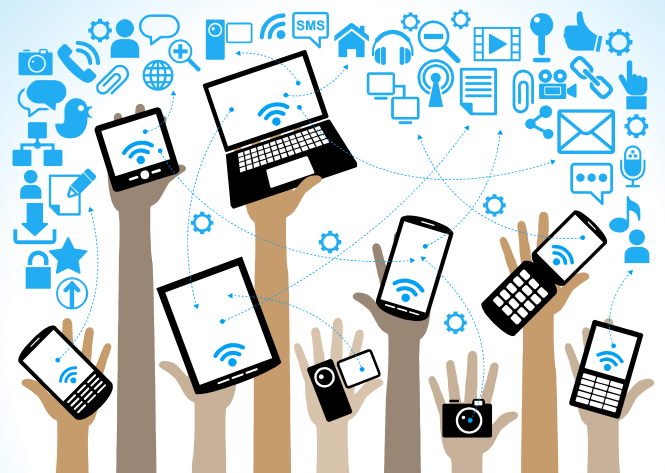

Should technology be banned? This question sparks passionate debate across the globe, with arguments both for and against its uncontrolled proliferation. It’s a complex issue deeply woven into the fabric of modern society, touching on everything from individual freedoms to global economic systems. This article dives deep into the multifaceted arguments regarding the potential benefits and drawbacks of a complete technology ban, examining the potential ramifications on society and individuals. We will outline the potential harms, benefits, ethical considerations, and possible solutions to this intricate issue. The structure of this article will first lay out the various arguments against complete technological restriction, then discuss possible societal impacts of these restrictions. Following this, we explore viable solutions to a balanced approach toward technological development.
Arguments Against a Technology Ban
Economic Impacts
Technological advancements have consistently driven economic growth and innovation. From the invention of the printing press to the rise of the internet, technology has created new industries, spurred productivity, and improved living standards. A comprehensive ban would undoubtedly cripple economic progress, stifle entrepreneurship, and potentially lead to massive job losses. This is evident in historical examples where technological development was curtailed or restricted, resulting in slower economic growth compared to periods of advancement. Additionally, such bans would disincentivize innovation and exploration in areas where technology can significantly contribute to problem-solving. A complete ban would drastically impact global trade, commerce, and overall economic stability.
Personal Freedom and Expression
Technology empowers individuals with unprecedented access to information and communication tools. A ban on technology, particularly in its current form, would severely limit personal freedoms. Individuals lose the ability to express themselves, communicate with others, and access vital information that can shape their perspectives and lives. The right to communicate, gather information, and form opinions is fundamental in a democratic society and a complete ban on technology would directly compromise these basic rights. Furthermore, restrictions on technology often lead to greater reliance on unreliable and untested sources of information.
Potential Societal Impacts of a Ban
Impact on Education and Learning
Technology plays a critical role in modern education, offering interactive tools, engaging resources, and accessible learning platforms. A ban would diminish educational opportunities and hinder progress in various sectors of society. Students would lose access to invaluable online learning resources and personalized educational tools. The ability to access a global network of knowledge and research would be lost, hindering advancements in scientific discovery and problem-solving. Technology has made learning more accessible and engaging for many students; a ban on technology would stifle this progress.
Communication and Connectivity
The ability to connect with people across distances has become critical in this interconnected world. A ban on technology would severely limit communication and hinder the ability for diverse communities to connect with each other. This could lead to social isolation and a decline in social interactions. The ease of global communication could be severely hampered, impacting collaborations in science, business, and humanitarian efforts. The ease of communication and social engagement that technology offers would be lost.
Ethical Considerations in Technology Regulation
The Need for a Balanced Approach
It is crucial to find a middle ground between the benefits and potential dangers of technology. Instead of a complete ban, the focus should be on establishing responsible regulations and guidelines to ensure ethical implementation. This includes addressing issues like data privacy, online safety, and misinformation. A nuanced approach involving dialogue between stakeholders, policymakers, and technology developers could provide a suitable framework for integrating technology without jeopardizing human values or social well-being. Focusing on responsible technology development is preferable to a complete ban.
Promoting Digital Literacy
Promoting digital literacy is essential to mitigating the negative impacts of technology. Individuals with the ability to critically evaluate information, navigate the digital landscape safely, and understand the societal implications of technology are better equipped to handle the challenges it presents. Empowering people through education programs and initiatives helps to promote safe and responsible use of technology, decreasing the risk of misuse or exploitation.
Alternative Solutions
Implementing Stricter Regulations
Rather than a complete ban, implementing stringent regulations is a more viable approach. Regulations could focus on content moderation, data privacy, and access to harmful materials. These measures would aim to mitigate the negative consequences while allowing for the benefits to continue. Establishing clear standards and guidelines for the development and implementation of technologies would promote responsible innovation. The development of guidelines and protocols by experts would lead to safer use of technology.
Education and Awareness Campaigns
Educating the public about the dangers and benefits of technology through comprehensive awareness campaigns is essential. Campaigns can be designed to teach individuals how to identify and avoid online threats and promote positive use cases. This approach would help empower individuals with the tools needed to navigate the digital world effectively. By increasing awareness, technology users can become more aware of the dangers of technology.
Conclusion
The question of whether technology should be banned is complex and nuanced. While a complete ban presents significant challenges to societal advancement and personal freedoms, regulation, education, and promoting ethical development are essential for harnessing technology’s potential while minimizing its risks. A balance between control and accessibility is vital, ensuring that technology empowers people while protecting them from its negative consequences. The development of robust guidelines will facilitate a more beneficial and sustainable relationship between humans and technology.
What are some potential societal impacts if technology is banned?
Education and learning would suffer greatly with the loss of online tools and resources. Communication and connectivity would decline, hindering social interactions and collaborations across distances. These restrictions could lead to social isolation and negatively impact economic opportunities.
How can we regulate technology effectively without banning it?
Stricter regulations on content moderation, data privacy, and access to harmful materials can address potential risks. Educational and awareness campaigns can empower individuals to use technology safely and responsibly. This approach aims to mitigate harm while preserving the benefits of technology. Focusing on responsible technology development and promoting digital literacy will be vital.
What is the alternative to banning technology?
Instead of a ban, a more viable approach is to regulate technology with stricter policies. This approach centers on addressing issues such as data privacy, online safety, and misinformation to effectively use technology. Focus on educating individuals about safe use of technology and promoting ethical implementation are equally crucial solutions.
What are the ethical considerations when it comes to technology regulation?
A balanced approach is key to navigating the relationship between technology and society. Responsible regulation, education, and addressing the ethical implications of technological advancements are vital for harnessing its potential benefits while mitigating its drawbacks. By actively promoting dialogue and collaboration among all stakeholders, a framework can be built to ensure sustainable and beneficial technology integration without compromising human values or social well-being.
What are the primary arguments against banning technology?
Technological advancements drive economic growth and innovation, leading to improved living standards and creating new industries. A technology ban could severely curtail personal freedoms, limiting access to information and communication. The potential for job losses and hampered economic development are additional significant risks.
In conclusion, the decision of whether to ban technology hinges on a delicate balance between its benefits and its potential harms. While technology undeniably offers incredible advancements, it’s crucial to acknowledge the societal and individual challenges it presents. A thoughtful approach, focusing on responsible development, ethical implementation, and comprehensive education, will be key to harnessing the power of technology while mitigating potential risks. For a future where technology empowers humanity, not enslaves it, consider exploring further the nuances of these ethical debates and the practical steps we can take. Visit [link to website] to learn more about technology’s impact on society.